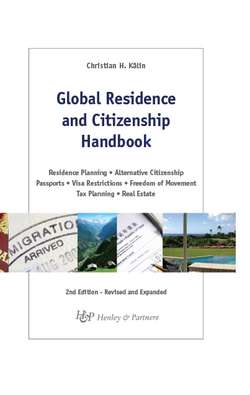Читать книгу Global Residence & Citizenship Handbook - Christian H. Kälin - Страница 25
На сайте Литреса книга снята с продажи.
Tax treaties and tie-breaker rules
ОглавлениеTax treaties can be relevant in finding solutions to the various tax problems associated with moving from one country to another or with having multiple residences in different countries.
Nearly all tax treaties include tie-breaker rules that determine which country has the right to tax an individual who is deemed to be resident for tax purposes in two countries at the same time by their domestic rules. The tie-breaker tests are applied in stages in order to determine the country with which the individual has the closest connection and is therefore granted the right of taxation. The current version of the OECD model treaty makes the following provisions for an individual who is considered to be a tax resident in two countries with double-tax treaties:
1. He shall be deemed to be a resident only of the country in which he has a permanent home available to him; if he has a permanent home available to him in both countries, he shall be deemed to be a resident only of the country with which his personal and economic relations are closer (centre of vital interests)
2. If the country in which he has his centre of vital interests cannot be determined, or if he does not have a permanent home available to him in either country, he shall be deemed to be a resident only of the country in which he has an habitual residence
3. If he has a habitual residence in both countries, or in neither of them, he shall be deemed to be a resident only of the country of which he is a citizen
4. If he is a citizen of both countries or of neither of them, the competent authorities of both countries shall settle the question by mutual agreement
In reality, mutual settlements between countries are rare and a solution is usually found earlier, either with the tax authorities in the country where the dispute about tax residence has arisen, or in the courts of that country if no agreement could be reached with the tax authorities.
